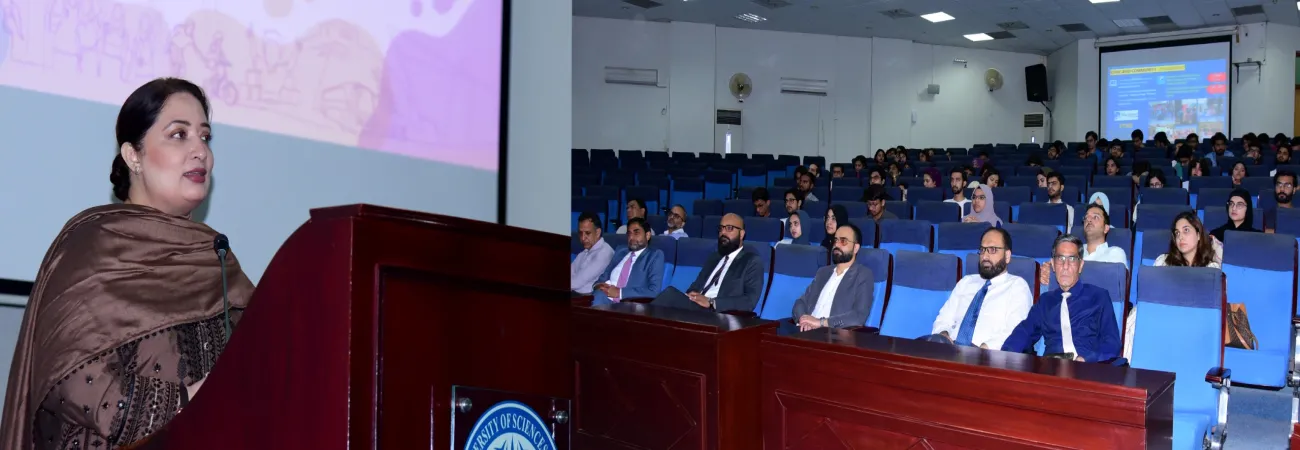i NEWS PAKISTAN
Coordinator to the Prime Minister on Climate Change, Romina Khurshid Alam highlighted the critical role of youth in shaping environmentally sustainable cities, addressing rapid urbanization and climate change challenges. "Cities must integrate climate adaptation strategies into urban planning to mitigate extreme weather risks," Alam emphasized addressing an event on World Habitat Day held at NUST. "By leveraging youth energy, creativity, and viewpoints, cities can strive for sustainable, equitable development and resilient smart cities," she added. The Global World Habitat Day was marked on Monday under the theme “Engaging youth to create a better urban future focusing on engaging youth in shaping sustainable cities and communities. Alam noted that cities account for 70% of global carbon emissions, with transport, buildings, energy, and waste management being major contributors. She stressed the need for innovative technologies, recycling, green materials, and climate-resilient architecture.
"The building sector alone accounts for 39% of global carbon emissions. A fundamental transformation is necessary for eco-responsible development," Alam added. Romina Khurshid stressed on the need to overcome difficulties in achieving the Sustainable Development Goals, particularly concerning poverty, inequality, and the imminent dangers posed by climate change. The Prime Minister's aide noted that cities must integrate climate adaptation strategies into urban planning to mitigate risks associated with extreme weather events. She noted that by leveraging the energy, creativity, and viewpoints of young people, cities can strive for environmentally sustainable and equitable development, fostering resilient smart cities that aim for a future free from pollution and carbon emissions. Romina Alam emphasized innovative technologies, the use of green materials, and construction techniques adapted to local conditions are some of the paths to be explored in the quest for more climate resilient and environmentally sustainable architecture. Citing research, she said that by 2050, two-thirds of our global population will live in urban areas.
Nearly 90% of the growth in urban population will occur in Asia and Africa. Ms Alam said the observance of the day focuses on how we can engage the new generation in climate resilient planning their urban present and future through participatory processes and local leadership opportunities. She explained the world is rapidly urbanizing, and many urban residents these days are young people, especially in some countries in Africa and Asia. Currently, youth in the global South make up 70 per cent or more of cities. However, she said these issues pose significant obstacles to the equitable growth and resilience of urban areas worldwide. Mobilizing support from all segments of society is crucial, with a particular emphasis on engaging the youth to develop inclusive and green cities. By harnessing the energy, creativity, and perspectives of youth, cities can work towards more environmentally sustainable, equitable development, and resilient smart cities ensuring a pollution and carbon emissions free future, The Coordinator concluded.
Credit: Independent News Pakistan









